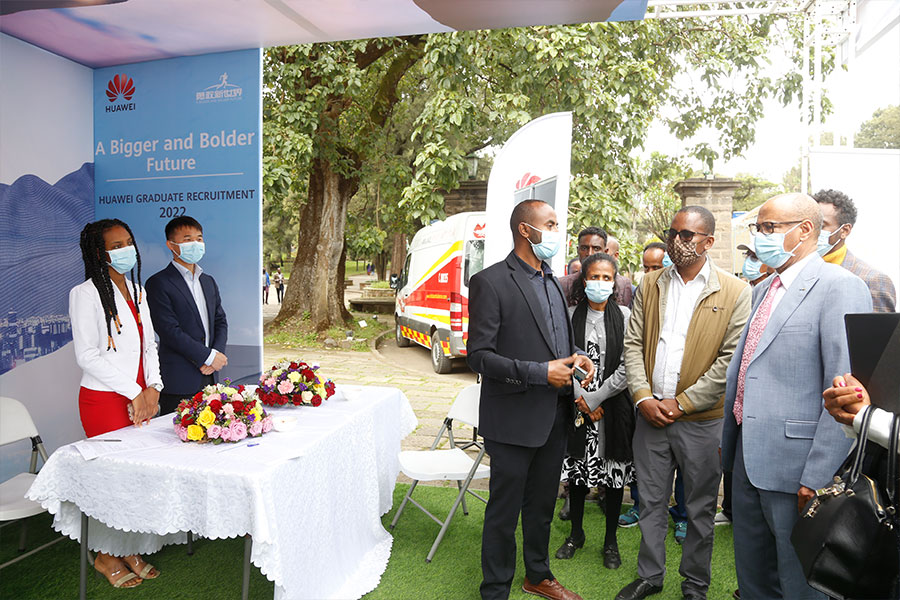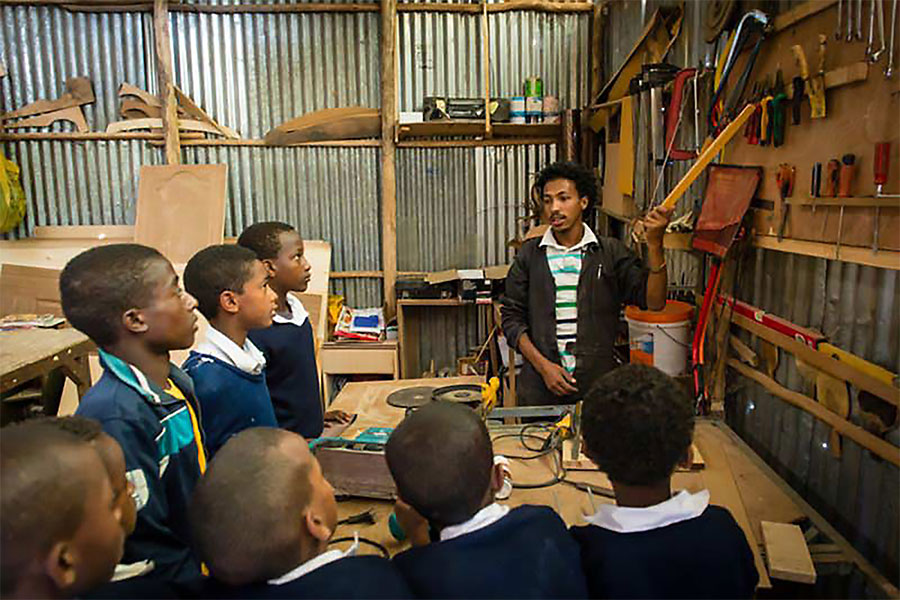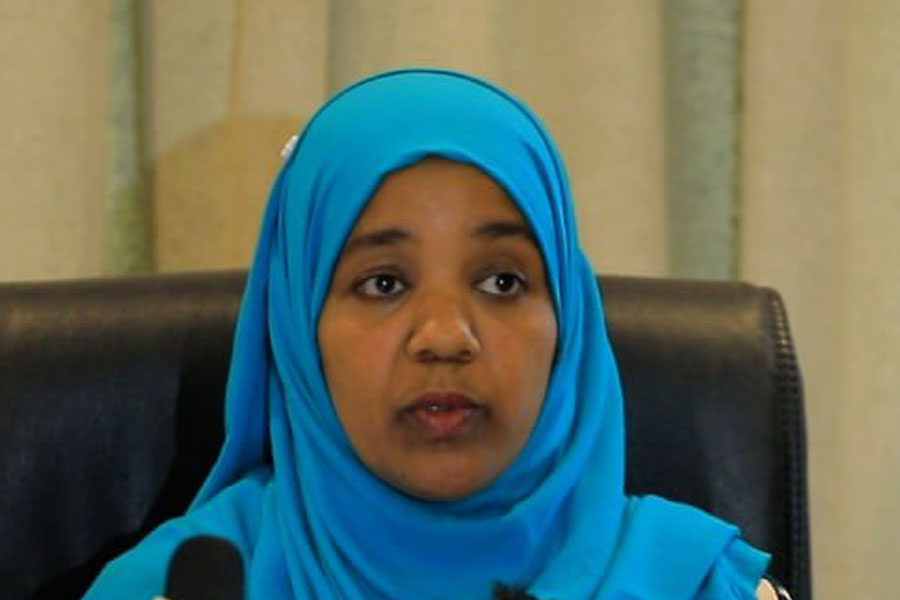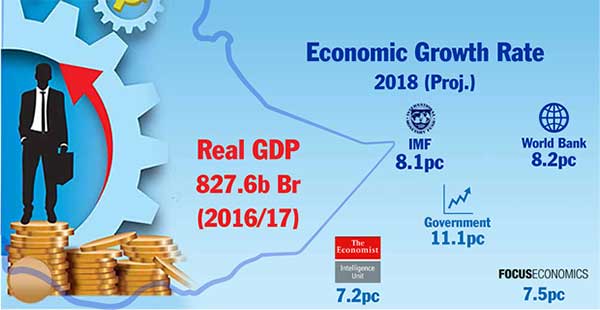
Feb 22 , 2020
By WUBESHET TIRUNEH
The constitutional mandate of Prime Minister Abiy Ahmed and his administration will end when the term of current parliament members expires later this year. The party or coalition of parties that wins a majority of seats in the upcoming election will form a government at the end of September 2020 and lead the country for a term of five years. The current administration will remain in power until a new government is formed.
The National Election Board of Ethiopia (NEBE), which is newly structured as part of the reform process, has announced that the upcoming national election will be held on August 29, 2020. The schedule is apparently aimed at meeting the constitutional requirement as well as avoiding a constitutional crisis. However, the prospect of Ethiopia holding an election free of violence seems highly unlikely.
National elections in Ethiopia were commonly held in May. This is because the constitution requires an election to be held a month before the MPs' term expires. The postponement of the traditional date was likely a result of how all election-related preparations were well behind schedule to conduct this year’s election in May.
Initially, the national election was tentatively scheduled to be held on August 16, 2020. In a forum organised by the Board to discuss the tentative schedule, many political parties expressed their concern about the logistical feasibility of conducting an election in the peak of a rainy season. The national election was finally pushed another 13 days and now will be held on August 29, 2020.
The Board was not able to make any further adjustments as requested by political parties. It is evident that the institution is neither prepared to hold an election in May nor able to push the date beyond August for constitutional reasons. The dilemma that the Board finds itself in is understandable.
On the bright side, international partners are providing unprecedented financial support for the Board to hold a free, fair and peaceful election. The support will help the Board build its institutional capacity to hold the election. Ensuring the neutrality and strengthening the capacity of the Board is indeed an essential step to hold a free and peaceful election. However, the Board alone cannot guarantee this, no matter how well it is prepared. Holding a peaceful election is a collective endeavour of all political actors.
The government should in advance ask itself whether it is prepared to lead Ethiopia through what will be the most contested election in Ethiopian history. The continuity and stability of the Ethiopian state will be at stake in the upcoming Ethiopian election unless the government is able and willing to ensure the rule of law.
The response of Abiy’s administration to the recurring security crises has often been inadequate. Lacking the institutional capacity to ensure the rule of law, it will be a grave mistake if the government thinks it can address election-related violence with the exiting level of preparedness and political commitment.
Maintaining the rule of law is the primary responsibility of the government. It has a duty not only to respect the law but also to ensure that other non-state actors respect it. To fulfill its responsibility and to ensure the rule of law before, during and after the election, governments, both at the federal and state level, should evaluate and strengthen their law enforcement capacity. Training should be given to law enforcement officers to strengthen their capacity and ensure their neutrality.
Holding a peaceful election is also partly a responsibility that falls on the shoulders of the opposition. Following the opening up of the political space, many exiled opposition political groups have returned to the country. While this was crucial to the democratisation process, their role has fueled political polarisation instead of serving any other purpose. Political parties, including the ruling party, should desist from anything that will further polarise society and plunge the country into further violence if they really believe in a democratic transition.
The meaning of the upcoming election to the Ethiopian democratic process is huge. Ensuring a democratic and peaceful transition in Ethiopia is not the responsibility of a single actor. The National Election Board, the government, political parties and all other stakeholders have a historic responsibility to ensure a peaceful, fair and free election will be held in Ethiopia.
PUBLISHED ON
Feb 22,2020 [ VOL
20 , NO
1034]


Radar | Oct 09,2021

My Opinion | Apr 09,2023

Life Matters | Oct 02,2021

View From Arada | May 29,2021

Radar | Mar 04,2023

Sunday with Eden | Jun 08,2024

News Analysis | Jan 05,2020

Commentaries | May 01,2020

Fortune News | Aug 16,2020

Viewpoints | Apr 26,2019

My Opinion | 131451 Views | Aug 14,2021

My Opinion | 127803 Views | Aug 21,2021

My Opinion | 125784 Views | Sep 10,2021

My Opinion | 123419 Views | Aug 07,2021

Dec 22 , 2024 . By TIZITA SHEWAFERAW
Charged with transforming colossal state-owned enterprises into modern and competitiv...

Aug 18 , 2024 . By AKSAH ITALO
Although predictable Yonas Zerihun's job in the ride-hailing service is not immune to...

Jul 28 , 2024 . By TIZITA SHEWAFERAW
Unhabitual, perhaps too many, Samuel Gebreyohannes, 38, used to occasionally enjoy a couple of beers at breakfast. However, he recently swit...

Jul 13 , 2024 . By AKSAH ITALO
Investors who rely on tractors, trucks, and field vehicles for commuting, transporting commodities, and f...

Jun 28 , 2025
Meseret Damtie, the assertive auditor general, has never been shy about naming names...

Jun 21 , 2025
A well-worn adage says, “Budget is not destiny, but it is direction.” Examining t...

Jun 14 , 2025
Yet again, the Horn of Africa is bracing for trouble. A region already frayed by wars...

Jun 7 , 2025
Few promises shine brighter in Addis Abeba than the pledge of a roof for every family...

Jun 29 , 2025
Addis Abeba's first rains have coincided with a sweeping rise in private school tuition, prompting the city's education...

Jun 29 , 2025 . By BEZAWIT HULUAGER
Central Bank Governor Mamo Mihretu claimed a bold reconfiguration of monetary policy...

Jun 29 , 2025 . By BEZAWIT HULUAGER
The federal government is betting on a sweeping overhaul of the driver licensing regi...

Jun 29 , 2025 . By NAHOM AYELE
Gadaa Bank has listed 1.2 million shares on the Ethiopian Securities Exchange (ESX),...